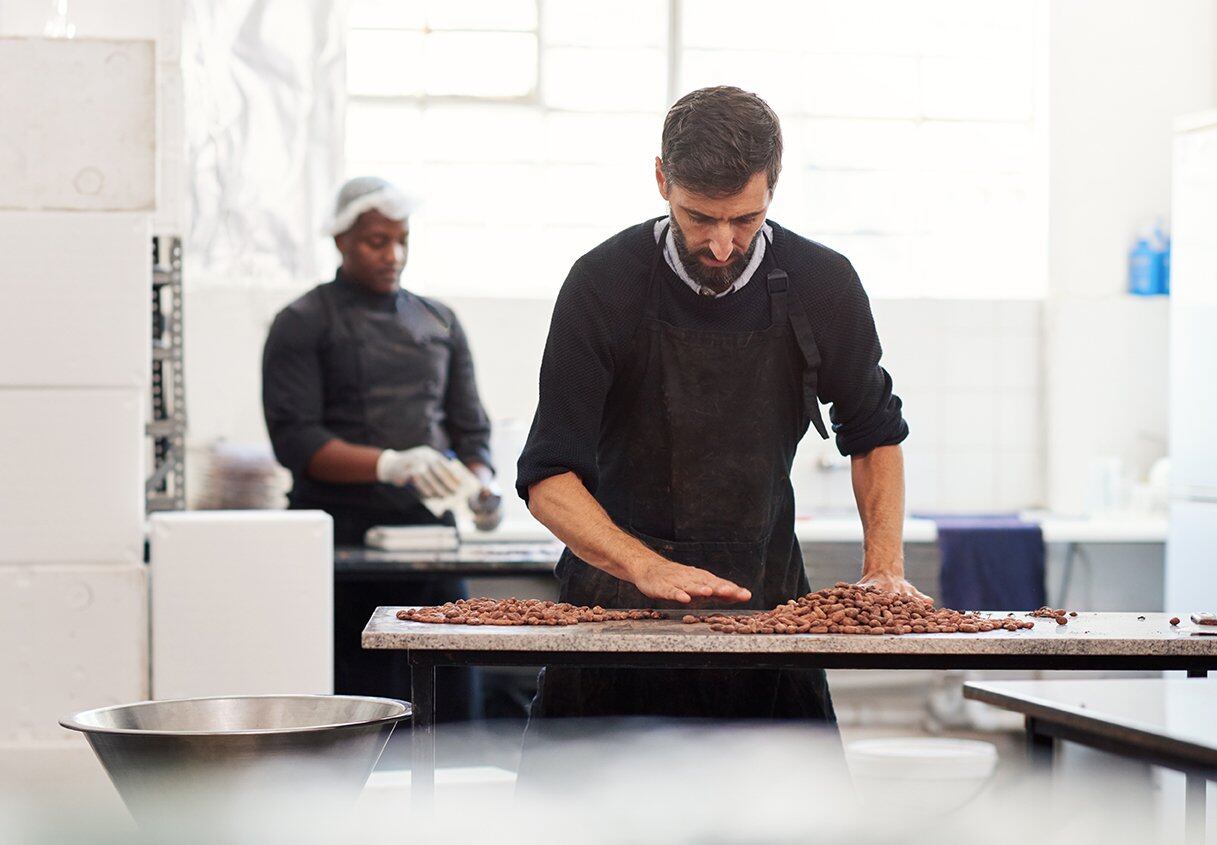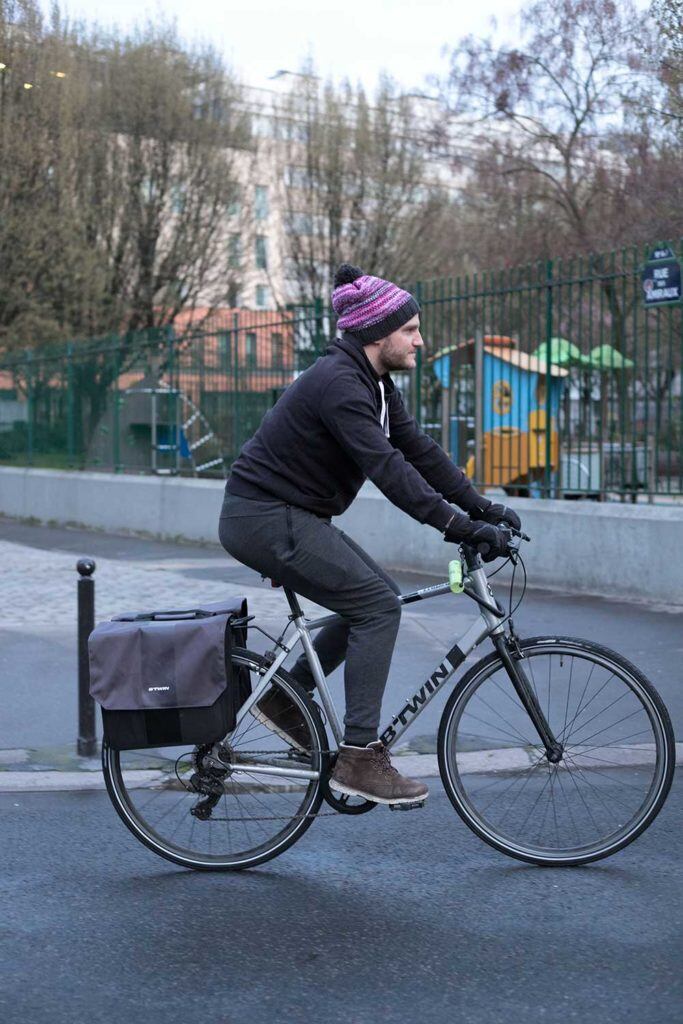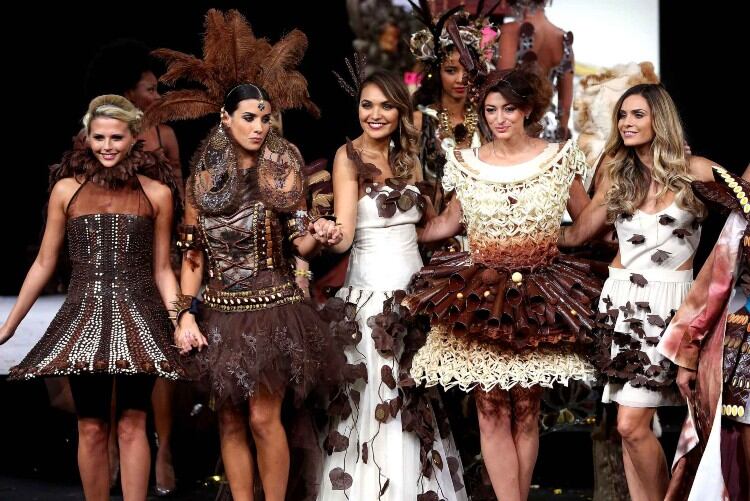Organisers said 120 exhibitors took part in the 2021 show, most came from France or Europe, because of international travel restrictions that are still in place.
“Our event was part of an optimistic momentum that is heading towards a return to normal for our sector, suggesting a very nice 27th edition in 2022 and we are hoping to welcome back, all the foreign exhibitors so that the party is total and the sector reunited,” says Gérald Palacios, President of the Salon du Chocolat.
French chocolatier Stéphane Bonnat says: “It was for us a very good experience with a human-sized edition that allowed us to see our customers. This accessible offer allowed us to participate in an important event that kept all its promises. Visitors took the time to exchange, to discover us. An experience to renew for sure."
One of the advantages of a scaled-back event was the fact that floor gave space to some newer French artisan brands that are bringing fresh vision and exciting ideas to the industry.
Les Copains de Bastien
Stéphane Petillon, is founder Les Copains de Bastien, which he created only one year ago. He says the germ of the idea started in 2019 when he was out walking around Paris with his young son, who asked, why there were so many homeless people on the streets, and why couldn’t his father give them a job so they can live in a house?'
“At the time was an IT manager. I had my own company but providing social care in IT is very, very difficult.“

A year later, Petillon took up baking during lockdown, learning the art of chocolate making from YouTube videos - and the question posed by his son stayed in his mind.
“I realised that doing something with your hands manually, making sweets, chocolate or something you can share is very comfortable for your mind and your spirit,” he says.
The company now has one full-time chef, a retail and manufacturing outlet near Gare de Nord in Paris and three employees, who are provided by a non-profit organisation who work with vulnerable people.
The company sources its premium cocoa directly from farmers from South America and “we work only with organisations that can prove their cocoa is equitable and free from child labour,” says Petillon.
Les Copains de Bastien’s packaging is minimalist, and eco-friendly – and the design of the chocolate bar is inspired by the street, with cobbles and a street sign embedded in the chocolate.
Petillion says his customers range from school children to older people and he believes consumers are willing to pay more for a quality product.
“Demand for Premium, bean-to-bar, chocolate is definitely increasing,” he says. “People like to discover new things, they want to eat something better for their own health and all our bars have only cocoa and some sugar that's it. Nothing else.”
Dos Rocas
Another Paris company to keep an eye on in the future is Dos Rocas. The company was established two years ago by Nicolas Kleen-Deroche, chocolatier and entrepreneur.
“My dream, is running a company, as I wanted. That means a lot of ecology, core responsibilities, nice ingredients and respect to human rights,” says Kleen -Deroche.
The company works with Lök Foods and sources its cocoa directly from Colombia, the rest of the ingredients - nuts, hazelnut, almonds, prunes - comes exclusively from France.
Kleen -Deroche says the company’s packaging is reusable, instead of recyclable – and he will go and collect it from his Paris customers himself, wash it and disinfect before it goes back into production.

His delivery method in Paris is also quite novel.
“I deliver by bike. It's a mechanical bike, because I try to have the lowest impact on the earth as possible. I deliver myself. It's quite exhausting, but it's very interesting because I make the chocolate, but I also encounter the customer, I can speak with them - and it's really interesting for me,” he says.
In the future he plans to import his cocoa by sailing ship and use only electric trains or horse & cart for overland journeys.
Kleen-Deroche says his customer age range is between 25 and 40 - and mostly women. He said consumers are willing to pay more once the difference of premium chocolate has been explained to them.
“I hope that in the long term, they will stop eating very low-quality chocolate and only focus on Dos Rocas and other the small businesses that try to make very nice chocolate,” he said.


